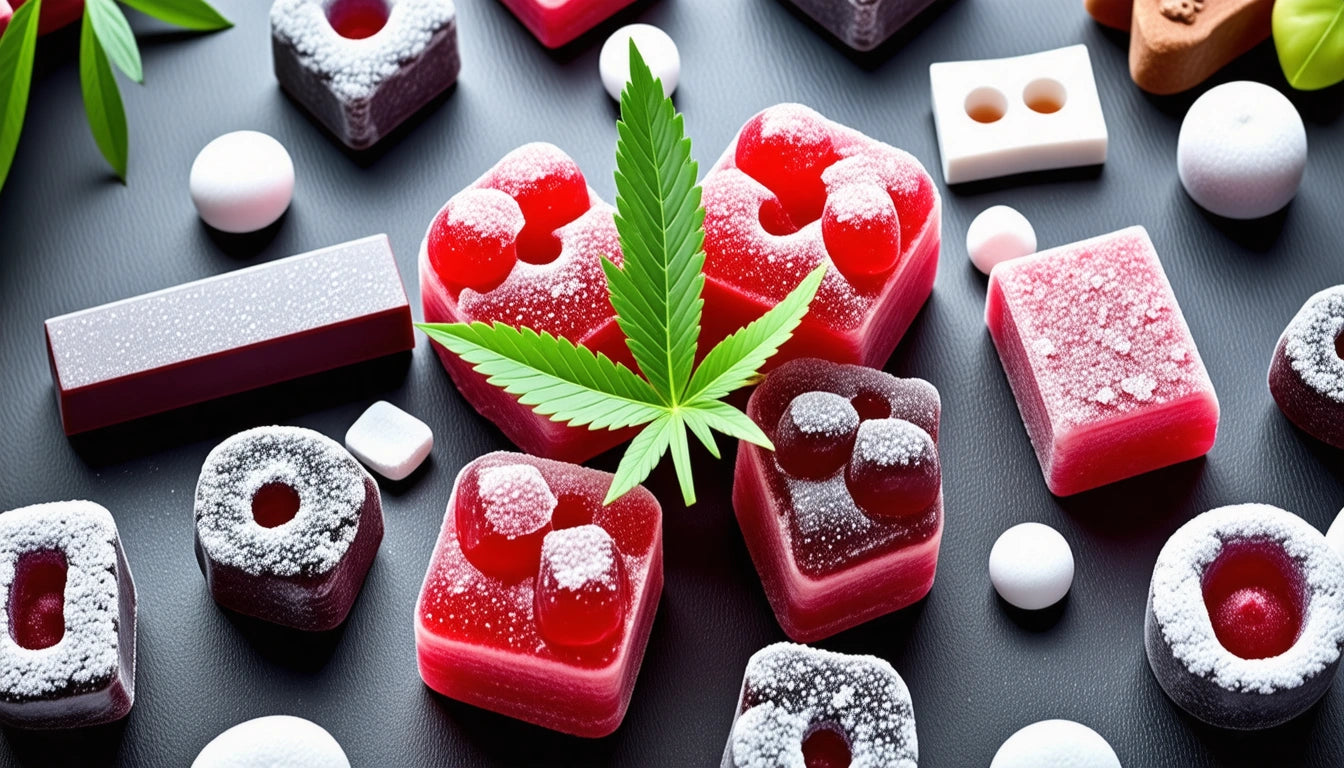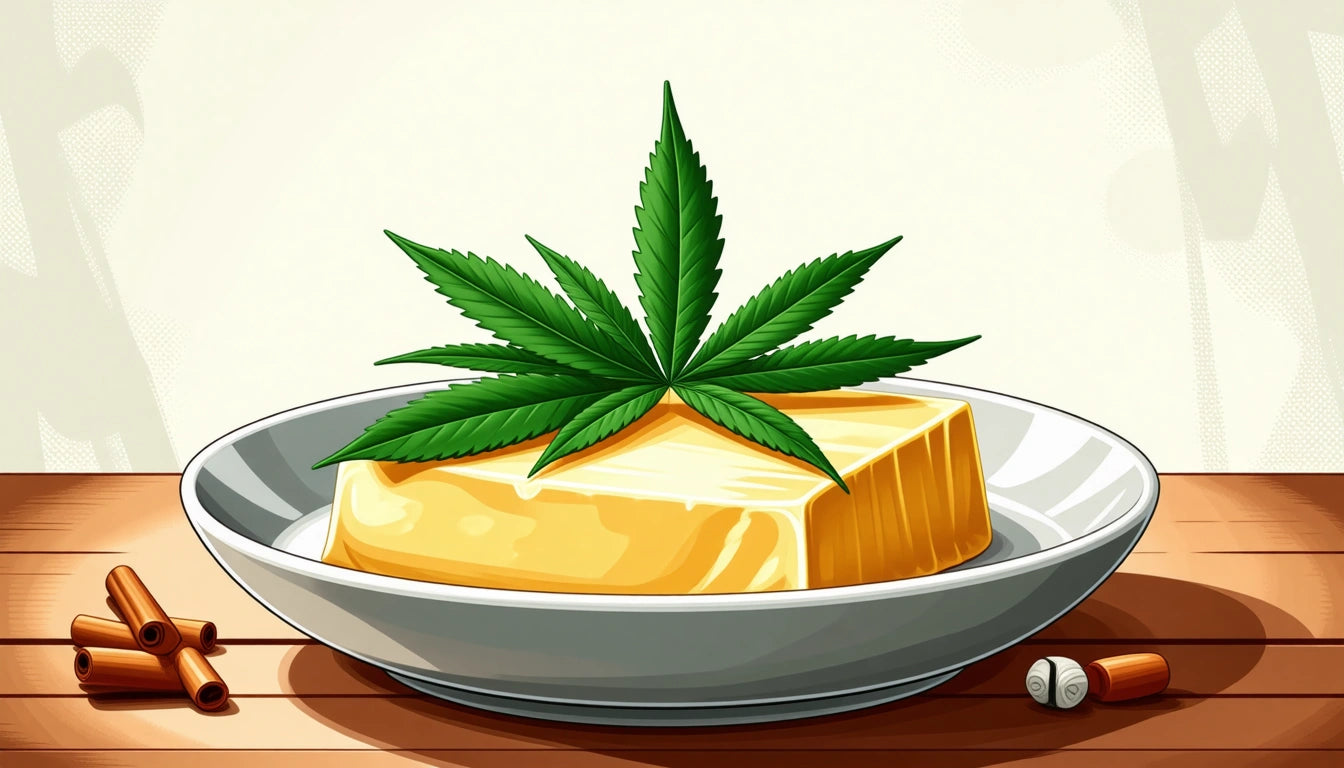Table of Contents
Freezing Edibles: How to Properly Store THC Gummies and Pot Brownies
Cannabis edibles represent a significant investment, both financially and in terms of their effects. Proper storage is essential to maintain potency, flavor, and texture over time. Freezing has become a popular method for extending the shelf life of cannabis-infused products, but many consumers wonder: can you freeze THC gummies? What about pot brownies? This comprehensive guide explores the science behind freezing edibles and provides practical storage techniques to preserve your infused treats.
Can You Freeze Cannabis Edibles?
Yes, you can freeze cannabis edibles. In fact, freezing is one of the most effective methods for long-term storage of THC-infused products. The cold temperatures significantly slow down the degradation process of both the food components and the cannabinoids within them. This preservation technique works well for most edible types, including gummies, brownies, cookies, and cannabutter.
Similar to how freezing cannabis flower preserves trichomes, freezing edibles helps maintain their chemical composition and potency when done correctly. However, not all edibles freeze equally well, and proper preparation is essential.
Does Freezing Affect THC Potency?
A common concern among cannabis consumers is whether freezing edibles kills THC or reduces potency. The good news: freezing does not significantly degrade THC when done properly. THC and other cannabinoids are relatively stable at low temperatures.
Research indicates that THC begins to degrade primarily when exposed to:
- Heat (above room temperature)
- Oxygen
- UV light
- Humidity fluctuations
Freezing actually helps protect against these degradation factors by:
- Maintaining a consistently cold environment
- Reducing oxidation processes
- Eliminating exposure to light (when stored in opaque containers)
- Controlling humidity levels
For precise dosing after thawing, you might want to use accurate digital scales to portion your edibles into consistent serving sizes before freezing, ensuring predictable effects when consumed later.
How to Properly Freeze THC Gummies
THC gummies are excellent candidates for freezing due to their high sugar content and low moisture levels. Here's how to freeze edible gummies properly:
Step-by-Step Gummy Freezing Process
- Allow freshly made gummies to cure completely (usually 24-48 hours)
- Separate gummies with parchment paper to prevent sticking
- Place in an airtight container or freezer bag
- Remove as much air as possible
- Label with contents and date
- Store in the back of the freezer where temperature is most consistent
Gummies can typically be stored frozen for up to 6 months while maintaining good texture and potency. As noted in our guide on understanding edibles potency and shelf life, proper storage significantly extends the viability of these products.
Freezing Pot Brownies and Baked Goods
Can you freeze pot brownies? Absolutely. Cannabis-infused baked goods often freeze exceptionally well, sometimes even better than their non-infused counterparts. The cannabutter or cannabis oil in these products contains fats that help protect the THC during the freezing process.
Best Practices for Freezing Cannabis Brownies
- Cool brownies completely before freezing
- Pre-cut into individual portions for easier thawing
- Wrap tightly in plastic wrap, then aluminum foil (double wrapping)
- Place wrapped portions in a freezer bag or container
- Remove air before sealing
- Label with product type, potency (if known), and date
When properly stored, frozen pot brownies can maintain quality for 3-4 months. This approach works similarly for cookies, cakes, and other cannabis-infused baked goods.
Best Containers for Freezing Edibles
The container you choose plays a crucial role in preserving your frozen edibles. Ideal options include:
- Vacuum-sealed bags: Best for removing all air and preventing freezer burn
- Glass containers with airtight lids: Excellent for gummies and small items
- Silicone containers: Good for sticky items like caramels or taffy
- Freezer-safe plastic containers: Suitable for larger baked goods
Regardless of the container type, the key principles remain the same: minimize air exposure, prevent moisture exchange, and protect from light. Similar to the considerations when freezing cannabis flower, proper packaging prevents terpene and cannabinoid degradation.
Thawing Frozen Cannabis Edibles
Proper thawing is just as important as proper freezing. Follow these guidelines for best results:
For Gummies:
- Allow to thaw in the refrigerator for 1-2 hours
- Alternatively, thaw at room temperature for 30-60 minutes
- Avoid microwaving as this can damage THC and affect texture
For Brownies and Baked Goods:
- Thaw wrapped items in the refrigerator for 2-4 hours
- For quicker thawing, leave at room temperature for 1-2 hours
- Once thawed, consume within 2-3 days for best quality
While some may wonder if edibles might help with cold symptoms, it's important to note that proper storage and thawing ensure you get the intended effects from your products.
Long-Term Storage Considerations for Maximum Edible Freshness
For those looking to preserve edibles for extended periods, consider these additional tips:
- Rotate your stock, using older products first
- Keep a log of what's in your freezer and when it was stored
- Consider vacuum sealing for items stored longer than 3 months
- Keep freezer temperature consistent, ideally at 0 °F (-18 °C) or below
- Avoid storing edibles near strong-smelling foods that might transfer odors
Unlike the debate about storing cannabis in the refrigerator, freezing edibles is generally accepted as beneficial for most product types. The key is proper preparation, packaging, and handling during the thawing process.
With these techniques, you can confidently extend the life of your cannabis edibles without sacrificing quality or potency. Whether you're preserving homemade creations or store-bought treats, freezing offers an excellent solution for long-term storage of your valuable infused products.











Leave a comment
All comments are moderated before being published.
This site is protected by hCaptcha and the hCaptcha Privacy Policy and Terms of Service apply.